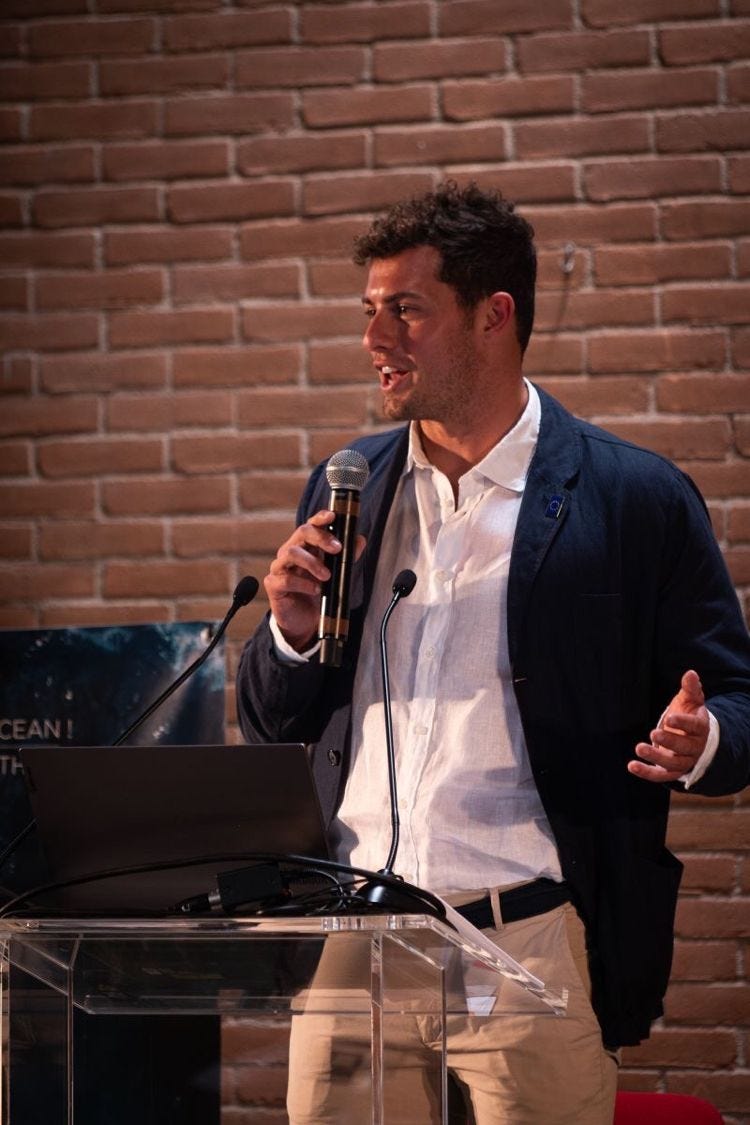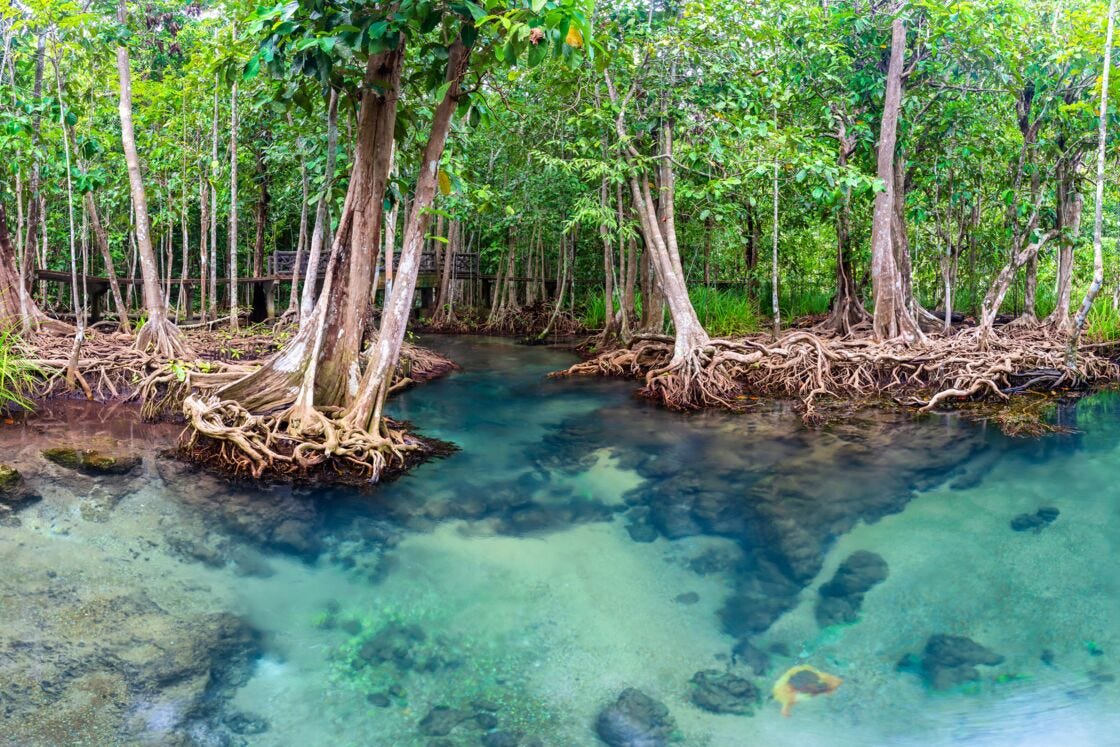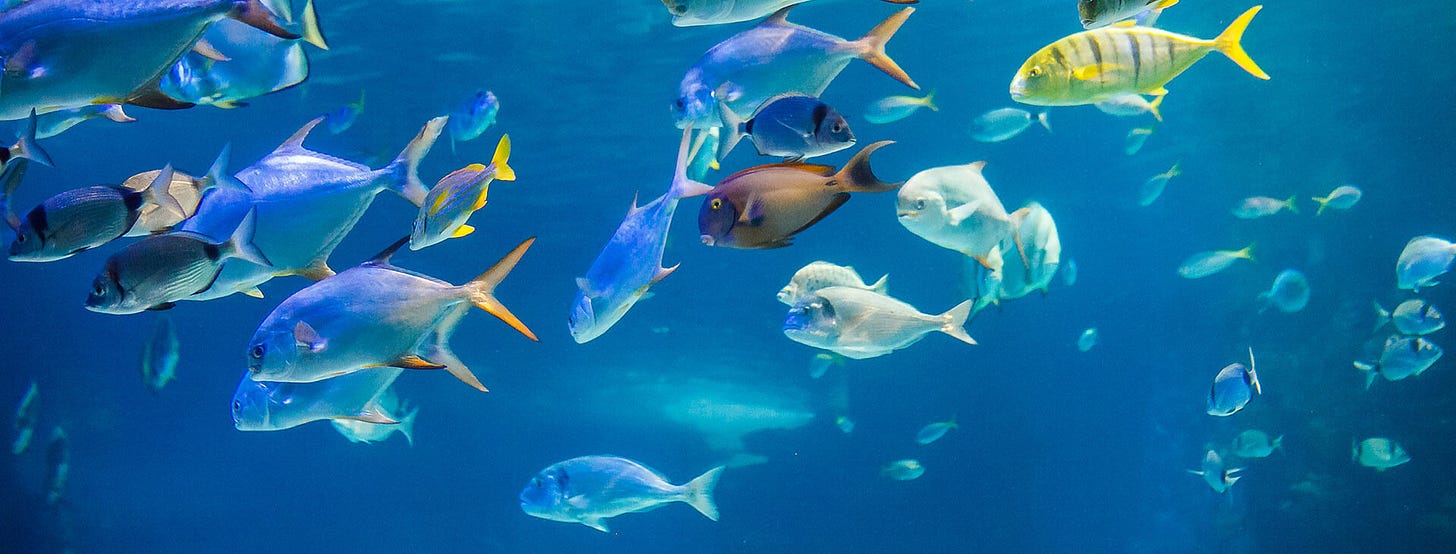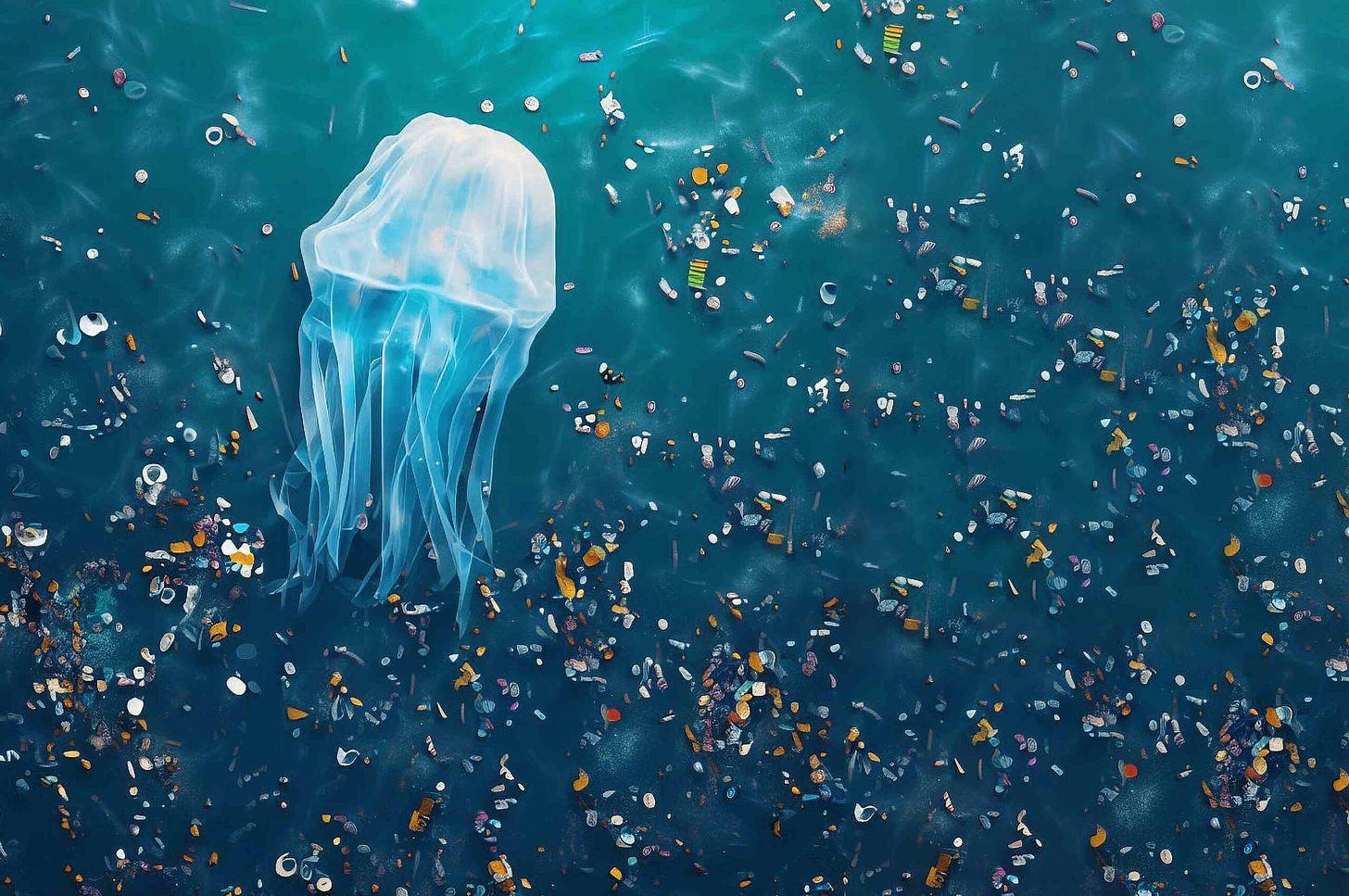Safeguarding Our Ocean: A Deep Dive into Ocean Preservation with Nicolò Di Tullio
Addressing Climate Crisis, Biodiversity, Plastic Pollution and the Way Forward
In this edition of our newsletter, we have collaborated with Nicolò Di Tullio, a PhD student and adjunct professor specializing in marine sciences, sustainability innovation and healthcare.
Our focus is on the ocean's crucial role in our environment and the practical steps we can take to safeguard it. Nicolò's expertise enriches our discussion with insights into the ocean's significance and the collective responsibility we share in its preservation. Together, we delve into effective strategies and actions that can make a real difference in protecting our oceans.
The Ocean: A Key Ally in Climate Crisis Mitigation
The ocean absorbs about a quarter of the carbon dioxide that is released into the atmosphere. It also produces oxygen as phytoplankton (microscopic plant-like organisms) produce about 50% of the oxygen that we breathe.
The ocean also plays a role in regulating Earth's temperature (heat sink) by transferring heat from the equator to the poles. In addition, the ocean protects coastlines from erosion and storm surge. Coral reefs, mangrove forests, and salt marshes all help to protect coastlines from the impacts of climate change.
“If we don't take urgent action to protect these ecosystems, we will face a catastrophic loss of biodiversity and rising sea levels that will displace millions of people, and more extreme weather events. The time to act is now.”
Nicolò Di Tullio
Why is Marine Biodiversity Relevant?
According to Nicolò: “Marine biodiversity is important for many reasons. It provides us with food, medicine, and many other resources. It also helps to maintain healthy ecosystems.”
Marine biodiversity benefits can be split into three main categories:
Tourism and recreation: Marine ecosystems are a major draw for tourism and recreation. Coral reefs, beaches, and marine life attract millions of visitors each year.
Economics: Marine ecosystems provide jobs and contribute to the economy in a variety of ways, including fishing, tourism, and coastal protection.
Ecological services: Marine ecosystems provide a variety of ecological services, such as carbon sequestration, nutrient cycling, and oxygen production. It plays a role in regulating the climate and the Earth's chemistry.
Marine ecosystems are facing a number of threats including: climate change, plastic and nutrient pollution, overfishing, habitat loss, invasive species, and sedimentation.
“Climate change is causing ocean temperatures to rise, which is making conditions more favorable for harmful algal blooms and diseases. It is also causing ocean acidification, which is making it difficult for some marine organisms to build their shells and skeletons.” Nicolò Di Tullio
Coral Reefs: A Biodiversity Heaven at Risk
Coral reefs are the most diverse marine ecosystems on Earth, supporting over 25% of all marine life. They provide habitat for a wide variety of organisms, including fish, shellfish, algae, and invertebrates. Coral reefs also play a vital role in the economy and food security of many coastal communities.
Coral reefs are currently under threat due to climate change, ocean acidification, unsustainable fishing practices, habitat loss, invasive species, and nutrient pollution.
“Climate change is causing ocean temperatures to rise, which is leading to coral bleaching. Bleached corals are more likely to die, and they can no longer provide habitat for the many organisms that depend on them. [...] The future of our oceans and the many species that depend on them hangs in this balance. We must protect these vital ecosystems and ensure their continued health and resilience.”
Nicolò Di Tullio
Plastic Pollution: A Threat to Marine Ecosystems
Plastic pollution can harm marine life in a number of ways, including entanglement, which can cause suffocation, starvation, and injury; as well as ingestion, which can lead to blockage of the digestive system and poisoning.
Microplastics are tiny pieces of plastic that can be ingested by marine organisms and can accumulate in the food chain. In a count conducted by scientists from Kyushu University in Japan in 2021, it was estimated that the world's upper oceans contain approximately 24.4 trillion microplastics. This amount would equate to about 30 billion half-liter water bottles1.
What Can We Do To Protect Those Ecosystems?
There are a number of things we can do to protect marine ecosystems, including:
Reducing our consumption of seafood: reducing your consumption of seafood is advisable to reduce our environmental footprint. Choosing a plant-based diet will have a lower environmental impact than eating seafood. If you choose to continue eating seafood (for various health, tradition or taste reasons), eat less of it but choose a higher quality.
Choosing products that are sustainably sourced: it is advisable to pick seafood that is local and seasonable. Also consider buying a new type of seafood as traditional species like salmon or tuna tend to be overfished. Buying seafood that is lower in the value chain and/or nourishes itself only from water is also more sustainable (like anchovies, clams, oyster, mussels, and scallops).2
Avoiding using single-use plastics: considering using reusable water bottles and bring your own bag(s) when going grocery shopping. Also consider buying solid cosmetics and detergents to reduce plastic packaging which may end up in the ocean. You can now purchase solid toothpaste, shampoo, shower-gel, and cleaning products to limit your plastic consumption.
Supporting organizations that are working to protect marine ecosystems: a great way to have a positive impact is to volunteer or donate at an organization that helps protect the ocean and its ecosystems. Some examples include Marine Conservation Institute, Surfrider Foundation, Greenpeace, Blue Marine Foundation.
Genova Ocean Agorà - A Best Practice
Genova Ocean Agorà is a project developed by Nicolò Di Tullio and a group of young ocean enthusiasts about climate change mitigation, coastal erosion and surf sports. Genova Ocean Agorà (GOA) is a collaborative project in Genova, Italy, that aims to protect the coastline from erosion while promoting biodiversity and recreational activities. It involves the installation of a submerged artificial reef that mimics natural reefs and provides habitat for a variety of marine life while creating new water activities like surfing, windsurfing and diving. GOA is also a community-driven project that encourages public engagement and education about ocean conservation.
Overall, Genova Ocean Agorà exemplifies a best practice in ocean conservation by combining protection measures with biodiversity enhancement, recreational opportunities, community engagement, and technological advancements which are monitoring the reef’s performance. The project demonstrates a holistic approach to coastal management that balances environmental protection with human well-being.
Final Thoughts: The Way Forward
In conclusion, the path to effective marine conservation is paved through public awareness and education. By informing and empowering individuals about the importance of marine ecosystems and the actions they can take, we can foster a culture of conservation and respect for our oceans. Building support for policies and motivating involvement in conservation efforts are crucial steps.
As we move forward, let us remember that each choice we make, from our dietary habits to our support for environmental policies and organizations, plays a role in shaping the future of our oceans. With collective effort and informed action, we can make a significant difference in preserving these vital ecosystems for generations to come.
This Week in Sustainability is a weekly email from Brightest (and friends) about sustainability and climate strategy. If you’ve enjoyed this piece, please consider forwarding it to a friend or teammate. If you’re reading it for the first time, we hope you enjoyed it enough to consider subscribing. If we can be helpful to you or your organization’s sustainability journey, please be in touch.
https://www.nationalgeographic.com/environment/article/microplastics-are-in-our-bodies-how-much-do-they-harm-us
https://www.thespruceeats.com/sustainable-seafood-choices-1665724











